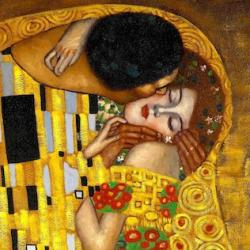Barth (Church Dogmatics, 3.2, section 44) discusses gratitude under the heading of “man as a creature of God,” but creatureliness needs to be seen in a particular way. Man is summoned by the word of grace, by God’s address and affirmation of man. We are “called into life by the Word of God” (175), which is a word of grace. Thanks is the human answer to that word, gratias in response to grace. We have, Barth says, our “being in gratitude.”
Gratitude is not, however, simply a passive reception of grace. Gratitude is a human act, and thus constitutes the subjective side of human being. God’s grace in His word is the objective basis of human existence. It is God coming to man. But this is fulfilled in the subjective return of man to God. God comes in grace, man returns in gratitude, and human beings exist in this circle of objective gift and subjective thanks. Human subjectivity properly understood is not rationality, consciousness, will, or whatever. Fundamentally, human subjectivity is the human response that corresponds, matches, fits with God’s coming to man. Human subjectivity is founded on thanks. Not “I think therefore I am.” Rather, “I thank, therefore I am.” (We might offer a friendly Rosenstockian amendment: “I thank, though I shall be changed.”)
Gratitude has the character of knowledge. We are first of all known. To be known is the Word of grace that comes to us. To know grace, to know the Word of grace, is to know the God who knows us, because the Word is with God and is God. Or, to know God is to know God as Benefactor, because the knower exists to know God only because of the benefit of existence that the Creator bestows. In the reception of grace and in thanks for it, a human begin becomes “the subject which knows God, and God becomes for him the known object” (176).
Gratitude is essential to knowing God. Any “purely objective” knowledge of God would require the knower to be on equal terms with God, an outside observer. No such knower exists (save the three Persons); every knower is a creature, addressed by the Word of grace, and so all actual knowledge of the living God is grateful knowledge.
This mutual, grace-and-gratitude knowledge constitutes the existence of man: “real man is the being who in the process of knowledge both is himself (in the movement from God) and posits himself (in the movement of return to Him)” (177).
Gratitude also has the character of obedience. The Word of grace imposes on human beings a task: “God is Subject, but over against God and in relation to Him man is also subject. I imply that I am subject by saying: ‘I will.’ And as I do not merely say this, but really will, I posit myself as subject. By willing, I recognise the fact that my being is not simply a gift with which I am endowed but a task for which I am commissioned. Indeed, I affirm and grasp my being as my task, and treat it as such. My being as my history does not merely take place like a drop of water carried along in a river. My being as history takes place in such a way that I myself see myself as the one I shall be, as the one it is my task to be” (180).
Thanks is the only appropriate human response to the word of grace that calls him into being. The being of man is an answer to God’s call and word, and since that work is grace, the answer that is man must be gratitude. Only the grateful man, Barth insists, is truly human. Ingratitude is not bestial; human beings cannot become beasts, and besides the Psalms indicate that the beasts join in praise to the Creator. The only alternative to a grateful reception of the creative word of grace is nothing. Barth poses the stark alternative: Gratitude or nihilism.















